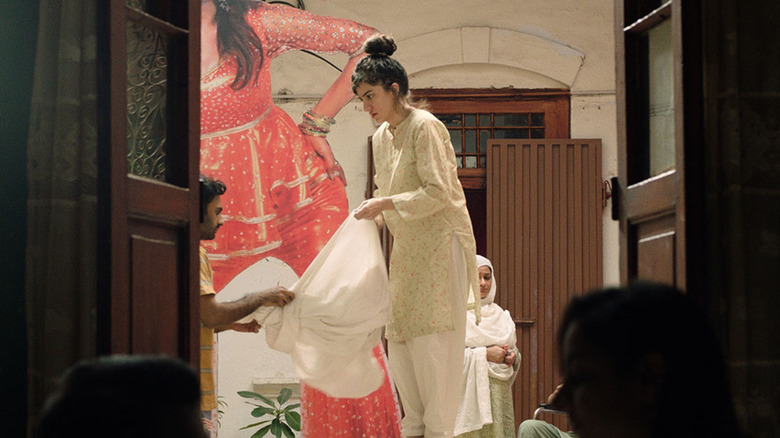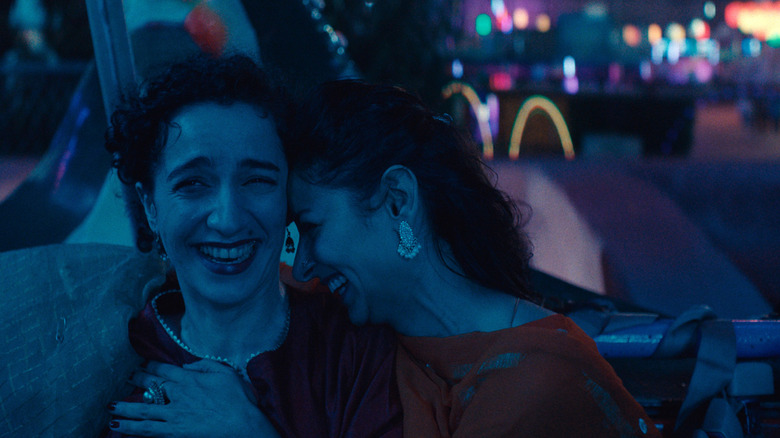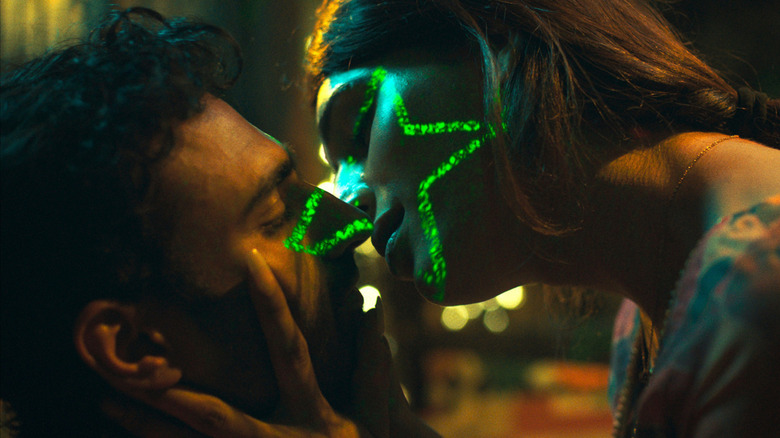Joyland Is A Cautionary Tale On Repression More Interesting On The Outskirts [Sundance]
No matter where in the world you live, and no matter what cultures you are surrounded with, there are a few emotions that are universally understood and felt. One of these universal emotions is more unspoken, and if they are discussed, they're kept in hushed whispers and closed doors. That feeling is repression, the regret of feeling something you shouldn't feel, even if you know it represents your true self.
Repression is at the core of "Joyland," Saim Sadiq's directorial debut, and Pakistan's controversial entry for the Oscars. It asks what were to happen if one fateful decision trickles down a traditional family unit, prompting their most hidden desires to come to light. That's exactly what happens when down-on-his-luck Haider (Ali Junejo) lands a well-paying job at an erotic dance house, serving as a background dancer to the intermission star, Biba (Alina Khan). As Haider begins earning money for his family, his wife, Mumtaz (Rasti Farooq) is forced to leave her makeup job to tend house with her sister-in-law, Nucchi (Sarwat Gilani). The more like a traditional family unit they become on the outside, the more the cracks in their facade begin to show.
"Joyland" is, at its core, an effective multi-directional character study on the dangers of repressing your true feelings. It's just a shame that the one that kickstarts the entire film is also the one that least deserves its central placement.
Hiding and seeking
To the film's credit, it understands fully well that Haider is kind of a piece of work. He's unassertive, weak, and unmotivated to do anything besides help out his aging father, Rana (Salman Peerzada). While this is seen as a detriment to his masculinity by his father, it's instead a sign of his perpetual unhappiness. The problem lies in his inability to change – even though it is clear that Sadiq wrote him to be this way, it simply makes you want the perspective to change elsewhere, even if Junejo's acting is solid.
Speaking of elsewhere, the film's strongest aspects lie within the women affected by Haider's impending decisions. Khan is great as Biba, conveying a flurry of emotions and thoughts just through her body language. Her arc as a trans female dancer struggling to move on after a traumatizing event is also quite well-depicted, and the film smartly frames her as its one truly sympathetic character.
However, it is ultimately Farooq's portrayal as the distant, self-conscious Mumtaz that will stick with viewers. She is thrust into situations that she has absolutely no control over, and as depicted earlier in the film, she is a woman that values her autonomy and self-reliance. Farooq's range of emotions, from restrained lust to disassociative despair, is extremely compelling, and even relatable across cultures. She certainly is a complicated woman, but one will likely want the entire film to center around her struggles and reprieves of regaining autonomy.
Will you come? To my funeral?
At the same time, however, it's almost as if "Joyland" knows that its central focus of Haider isn't the most interesting one. In many scenes between solely Biba and Haider, she is shot in beaming light as he is shrouded in darkness. While not remarkable in and of itself, they elevate the story in a way that makes it more layered as it progresses. The film knows that Biba deserves better than Haider, and in a way, these scenes also show that he isn't deserving of Mumtaz, either. After all, he sinks further and further into his own isolated darkness, focusing on his own needs instead of being the best version of himself for his family. While this doesn't necessarily make him evil or a villain, it does prove that letting go of your repressed desires in unhealthy ways will only cause hurt in the end.
"Joyland" is deserving of its international recognition, even though it didn't deserve the controversy that led to its mainstream spotlight. Regardless, Sadiq's debut is a complicated, oftentimes uncomfortable one about what will happen to us if we push our true feelings down so far, they threaten to destroy us. While its central story can be a bit of a bore due to its least-interesting character having the spotlight, its cautionary tale is powerful enough to stay with you long after viewing. It's not unlike the major dance scene that occurs at the end of its second act: daring, heart-wrenching, nuanced, and resilient, all in equal measure.


